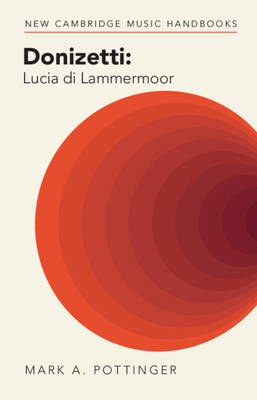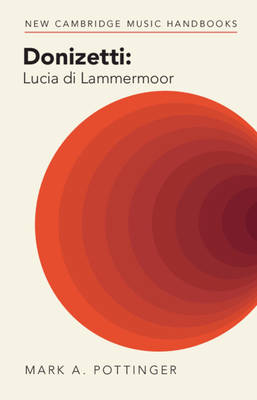
- Afhalen na 1 uur in een winkel met voorraad
- Gratis thuislevering in België vanaf € 30
- Ruim aanbod met 7 miljoen producten
- Afhalen na 1 uur in een winkel met voorraad
- Gratis thuislevering in België vanaf € 30
- Ruim aanbod met 7 miljoen producten
Zoeken
€ 27,45
+ 54 punten
Uitvoering
Omschrijving
Donizetti's opera, based on Walter Scott's novel, is a staple of the bel canto operatic repertoire and famed above all for its vocally challenging and frequently reinterpreted 'mad scene' that precedes the lead character's death. This handbook examines the impact Lucia has had on opera and investigates why, of all of Donizetti's seventy operas, this particular work has inspired so much enthusiastic interest among scholars, directors and singers. A key feature is the sheer mutability of the character Lucia as she transforms from a lyric bel canto figure to a highly charged coloratura femme fatale, fascinating not just to opera historians but also to those working on sound studies, literary theories of horror and the gothic, the science of the mind, gender theory and feminist thought. The book places Lucia within the larger contexts of its time, while underlining the opera's central dramatic elements that resonate in the repertoire today.
Specificaties
Betrokkenen
- Auteur(s):
- Uitgeverij:
Inhoud
- Aantal bladzijden:
- 180
- Taal:
- Engels
- Reeks:
Eigenschappen
- Productcode (EAN):
- 9781009374491
- Verschijningsdatum:
- 31/10/2025
- Uitvoering:
- Paperback
- Formaat:
- Trade paperback (VS)
- Gewicht:
- 250 g

Alleen bij Standaard Boekhandel
+ 54 punten op je klantenkaart van Standaard Boekhandel
Beoordelingen
We publiceren alleen reviews die voldoen aan de voorwaarden voor reviews. Bekijk onze voorwaarden voor reviews.











